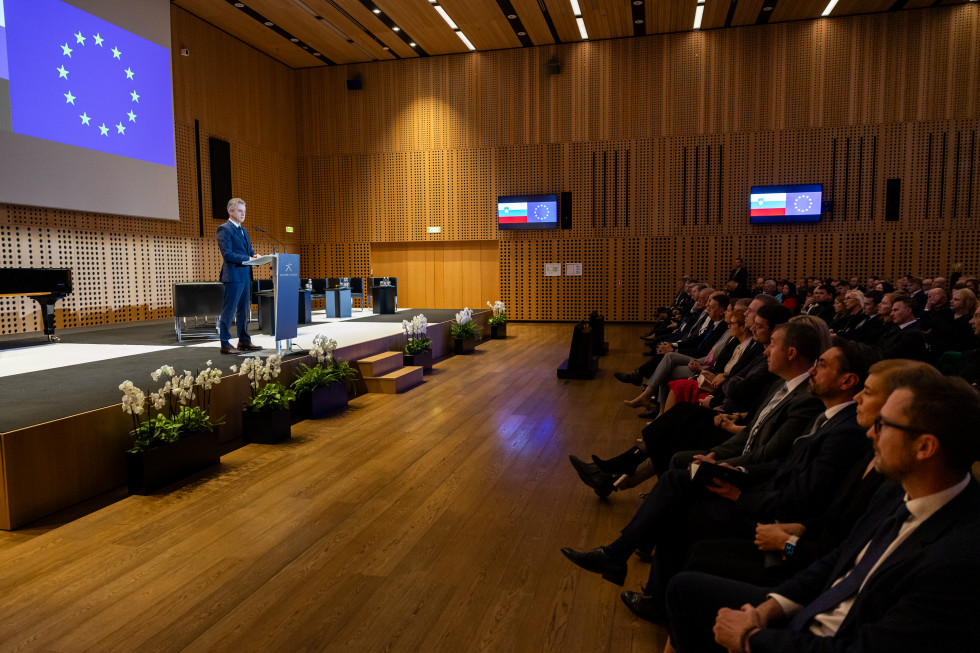Dr Golob at the Business Summit: It is knowledge that will boost productivity

The Slovenian Prime Minister, Dr Robert Golob, today attended the Slovenian Business Summit in Brdo pri Kranju | Author Žan Kolman/KPV
In his address to the participants, the Prime Minister stressed that the State is expected to provide a secure and stable environment, especially when external circumstances create uncertainty.
Immediately after taking office, the Government addressed and responded decisively to the energy crisis resulting from Russia's aggression against Ukraine: "This year we have allocated more than EUR 1 billion from the budget to tackle the energy crisis. Of course, we would be happy to redirect these funds to other activities if we could. But our first and foremost task is to ensure a safe and stable environment."
In order to mitigate the effects of the energy crisis and inflation on the population, the Government increased the minimum wage, social transfers and public sector wages. "We have invested in social capital and I strongly believe that the participants here are even more aware of this than anyone else." Only a satisfied worker is a good worker, because only then can they actually unleash their creative potential in the workplace," stressed Dr Golob.
As a remarkable success for Slovenia, he highlighted today's European Commission's decision to advance the first EUR 100 million from the Solidarity Fund to Slovenia for post-flood reconstruction still this year. "I dare say that Slovenia's foreign policy position is better today than at any time in the last 20 years. Today's advance payment, the advance of the first EUR 100 million from the Solidarity Fund, is something that actually no one in the European Union has managed to achieve before. And that is the result of our investment in our foreign policy capital. That is stability."
The Slovenian Prime Minister recalled last year's warnings from business representatives to tackle the uncertainty caused by the economic crisis and labour shortages. Significantly shortened procedures for obtaining work permits have led to a 15% increase in the share of foreign workers, and the Government will further simplify procedures for employing foreigners.
Dr Golob also pointed out that never before has so much money been allocated to research, science and development. The State will spend more than half a billion euros next year, and the investment plan for next year includes funds amounting to EUR 1.2 billion. "It is precisely these resources that are most important if we are to build on and create knowledge-based prosperity. Because it is only knowledge that will increase productivity," added the Prime Minister.
He concluded by inviting all participants to continue the dialogue in order to work together on reducing bureaucratic obstacles and sharing the burden in a balanced way and through appropriate tax policies.

